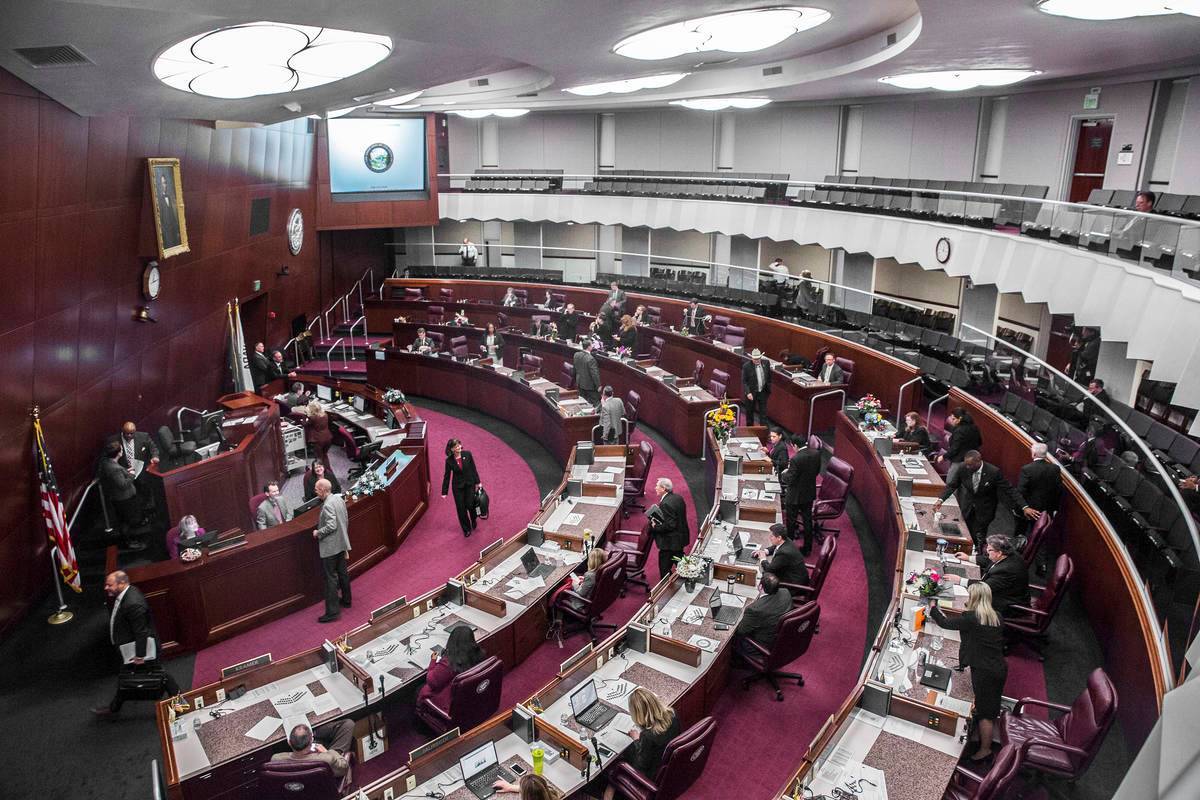Assembly bill would end criminalizing traffic tickets
Assemblywoman Rochelle Nguyen, D-Las Vegas, filed legislation Friday that would decriminalize minor traffic violations, making them civil infractions and ending the practice of issuing warrants when an individual can’t afford to pay the fines, fees and assessments imposed.
Assembly Bill 116 was introduced with seven primary sponsors — including Senate Majority Leader Nicole Cannizzaro — and 23 co-sponsors, including Assistant Minority Whip Lisa Krasner, R-Reno.
Nevada is one of only 13 U.S. states that prosecutes minor traffic violations as criminal offenses rather than as civil infractions.
“Right now, people who are unable to pay traffic fines for minor violations such as speeding or driving with a broken tail light can be arrested and even incarcerated,” Nguyen said. “This costs taxpayers millions of dollars each year, and it can cost those who are unable to pay the loss of their jobs. I’m working with community partners and other stakeholders to find common-sense solutions because the process we have now isn’t working for Nevadans.
“Many of our neighboring states have already decriminalized traffic tickets, and it’s time for Nevada to follow suit.”
A broad coalition of stakeholders has lined up in support of AB 116, including the Fines and Fees Justice Center, Americans for Prosperity, Mi Familia Vota, Progressive Leadership Alliance of Nevada, American Civil Liberties Union of Nevada, Nevada Attorneys for Criminal Justice, Clark County Black Caucus, Forced Trajectory Project, Battle Born Progress, Return Strong: Families United for Justice for the Incarcerated, Mass Liberation Project and the Washoe County Public Defender’s Office.
“These warrants distract law enforcement from activities that actually improve public safety and can unnecessarily rob individuals of opportunities to improve their lives — particularly those already struggling to succeed,” said Wiz Rouzard, community engagement director at Americans for Prosperity. “Such actions waste time and resources, lead to unnecessary contacts between citizens and police and can erode trust between law enforcement and the communities they serve.”
Nevada’s justice courts and municipal courts have issued hundreds of thousands of arrest warrants over the years. When the pandemic forced courts to close last March, 270,000 warrants were outstanding in the Las Vegas Justice Court.
In Clark County, the average person arrested on a traffic warrant spends almost three days in jail at a cost to taxpayers of more than $400. Three days in jail often costs a person a job, housing and even children, making it far more difficult to earn the money to pay their court debt or to care for themselves or their families.
AB 116 builds on a successful model established by Carson City, which stopped issuing warrants in traffic cases in 2019. Carson City’s collection rate increased by 8.5% following implementation.
Although some jurisdictions have stopped enforcing warrants because of COVID-19, others such as Henderson and North Las Vegas are continuing to issue and enforce warrants for traffic debt, which can trap residents in a vicious cycle of debt and criminal punishment.
“Punishing people because they don’t have money is bad economic policy and one of the least efficient ways to raise revenue,” said Leisa Moseley, Nevada state director at the Fines and Fees Justice Center. “At a time when so many Nevada residents are losing their homes and unable to meet their basic needs, this criminalization of poverty is adding insult to injury.”
















